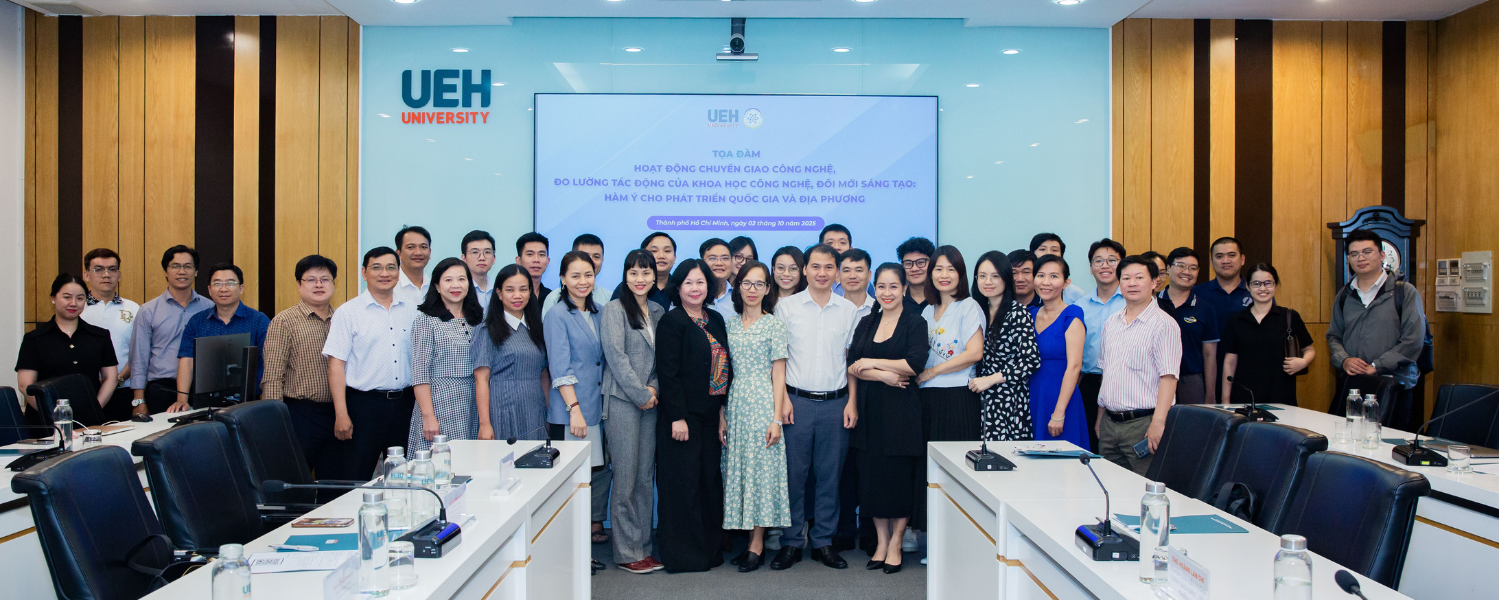
Scientific Seminar: Technology Transfer, Measuring the Impact of Science, Technology, and Innovation: Implications for National and Local Development
08 Oct, 2025
In the spirit of cooperation to advance science, technology, and innovation (STI), on October 2, 2025, at Campus A – 59C Nguyen Dinh Chieu, the University of Economics Ho Chi Minh City (UEH) collaborated with the Ministry of Science and Technology to organize a Scientific Seminar themed "Technology Transfer, Measuring the Impact of Science, Technology, and Innovation: Implications for National and Local Development."
Representing the National Institute for Science and Technology Policy and Strategy Studies, Ministry of Science and Technology, were Dr. Nguyen Huu Xuyen – Vice Dean; MA. Nguyen Lan Anh – Former Head of the Department of Innovation Policy; Dr. Dang Thu Giang – Deputy Head of the Department of S&T Market Development Policy; MA. Hoang Van Thu – Deputy Head of the Administration-General Department; Mr. Do Van Da – Officer of the Administration-General Department; and MA. Hoang Lan Chi – Researcher at the Department of Innovation Policy. Representing the HCMC Department of Science and Technology was MA. Luong Thi Le Hang – Vice Director. From UEH, attendees included Assoc. Prof. Dr. Phan Thi Bich Nguyet – Chairwoman of the Strategy and Policy Advisory Council; the Rectors of member colleges; leaders of functional departments and UEH Mekong; and startup enterprises from the UEH innovation ecosystem.
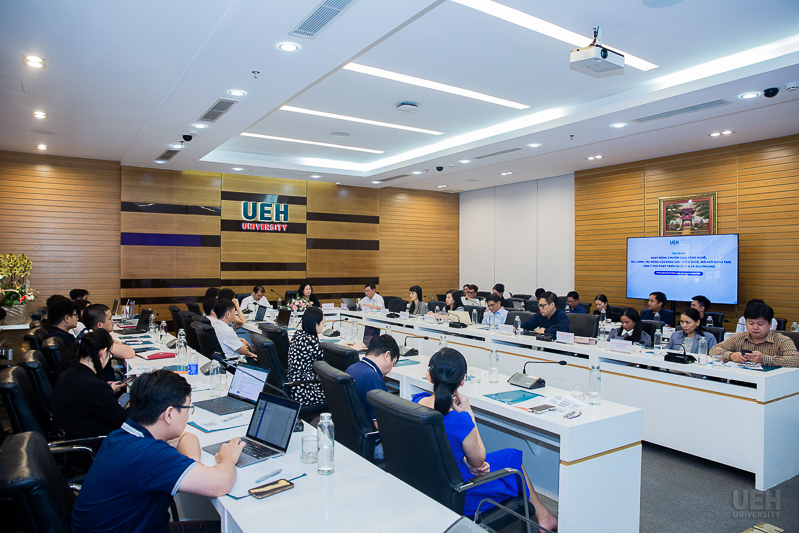
Overview of the program
In her opening remarks, Assoc. Prof. Dr. Phan Thi Bich Nguyet affirmed that technology transfer has always been an essential driver for socio-economic development. She stated that quantifying the impact of STI must be based on a solid scientific foundation and be objective and persuasive. Most importantly, it is crucial to correctly understand, properly implement, and ensure that science and technology operate within a legal framework that aligns with the nation's development realities.
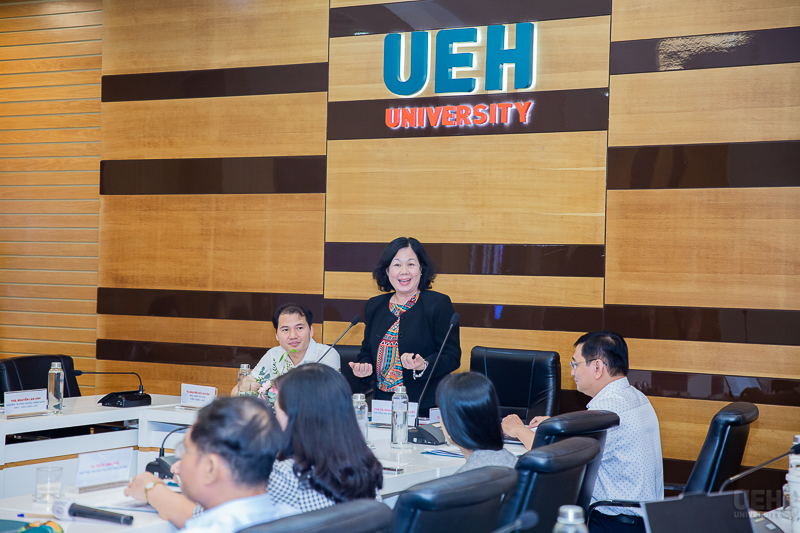
Assoc. Prof. Dr. Phan Thi Bich Nguyet - Chairwoman of the UEH Strategy and Policy Advisory Council, speaking at the Seminar
At the seminar, representatives from the National Institute for Science and Technology Policy and Strategy Studies shared perspectives and philosophies on the development of STI (STID), emphasizing STID's role in promoting socio-economic growth. This forms the basis for the National Indicator Framework for monitoring and evaluating STI potential and proficiency, which was announced by the Ministry of Science and Technology on September 19, 2025. This is considered a critical tool for realizing the goals of the Politburo's Resolution 57-NQ/TW. The Ministry also introduced a Provincial Indicator Framework, comprising 63 indicators, to help each province and city specify its direction, identify priority areas, and effectively implement STI tasks linked to sustainable development.
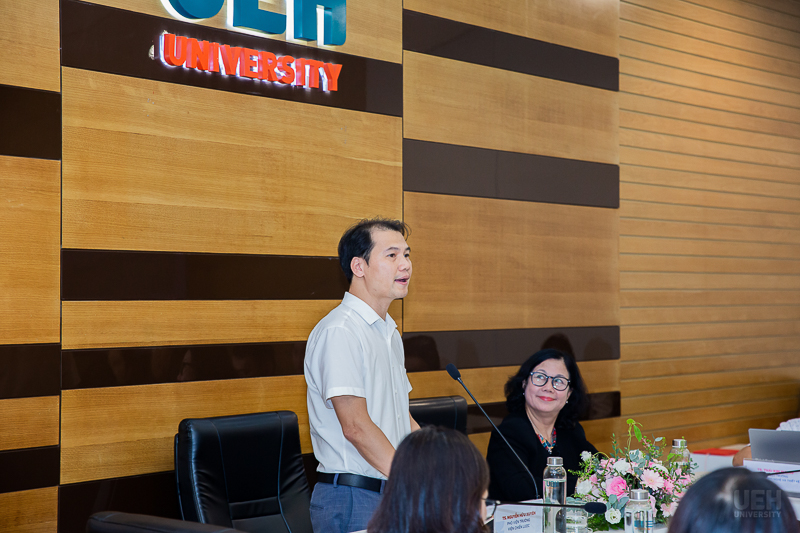
Dr. Nguyen Huu Xuyen – Vice Dean of the National Institute for Science and Technology Policy and Strategy Studies, Ministry of Science and Technology, delivering his presentation
Notably, the seminar generated in-depth discussion and contributions for the draft amended Law on Technology Transfer. It highlighted the importance of creating incentives for the commercialization of research outcomes through six new policy groups: 1. Defining the scope of regulated technology in the Law on Technology Transfer to encompass new technologies aligned with global trends and practical needs; 2. Supporting and promoting endogenous technology transfer, including transfers between domestic enterprises/organizations and individuals, and the commercialization of research results; 3. Developing a professional and transparent science and technology market; 4. Creating financial, institutional, and legal incentives for technology transfer activities; 5. Strengthening control over cross-border technology transfer to ensure both technology security and effective international transfer; and 6. Enhancing state management capacity and implementing monitoring, statistics, and measurement of technology transfer effectiveness.

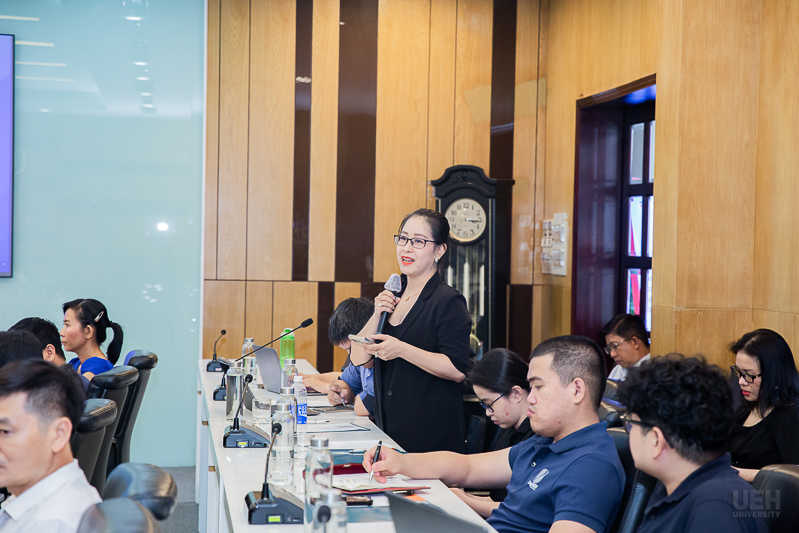

Delegates engaging in discussion
The seminar provided valuable insights, helping to clarify both theoretical and practical issues in implementing the Law on Technology Transfer, as well as shaping policies to promote STI and digital transformation for socio-economic development. The event not only reaffirmed the close collaboration between the Ministry of Science and Technology and UEH but also opened a forum connecting management agencies, the research community, universities, and the business sector. This is seen as a crucial foundation for spreading the spirit of innovation and laying the groundwork for sustainable development goals in the coming period.
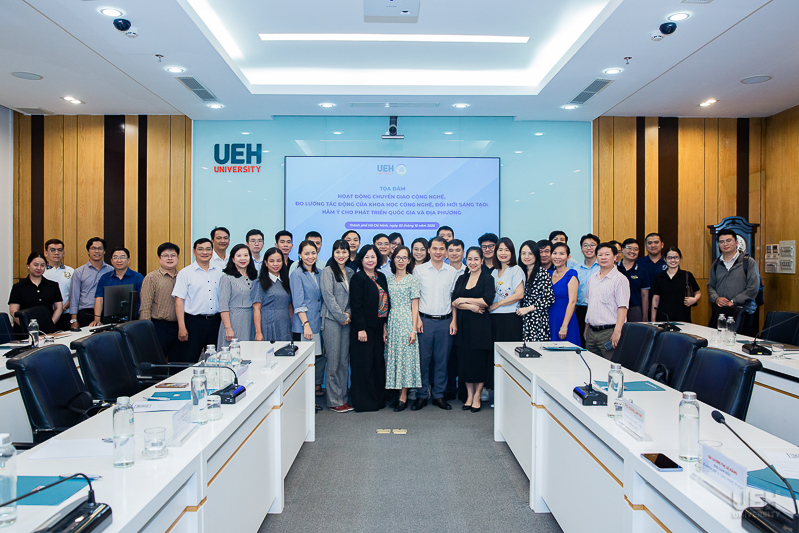
Delegates taking a commemorative photo
Pillars: Research, Community Engagement
News, photos: UEH Institute of Innovation, Department of Research – Development and Global Engagement










